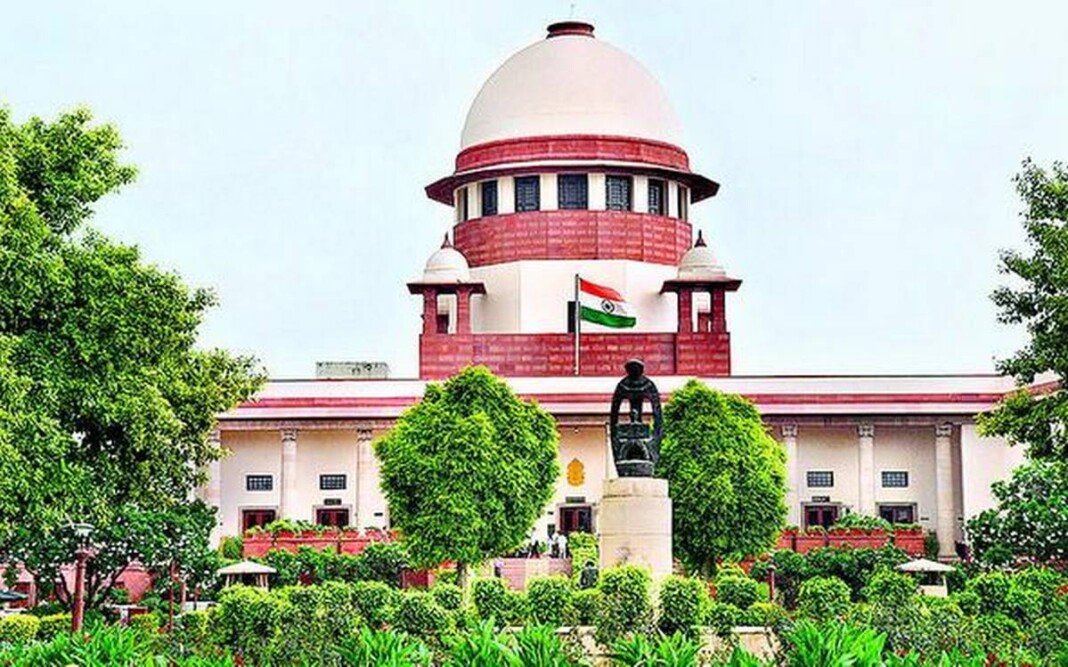HT Digital
Thursday, October 17: In a significant judgment on October 17, the Supreme Court upheld the constitutional validity of Section 6A of the Citizenship Act, 1955, by a majority of 4:1. This provision recognizes the Assam Accord, which grants citizenship to foreign migrants of Indian origin who entered Assam between January 1, 1966, and March 25, 1971. The court’s decision has sparked widespread debate, as it is seen as a key milestone in addressing the long-standing issue of illegal immigration in Assam.
The landmark verdict was delivered by a five-judge Constitution bench that included Chief Justice of India DY Chandrachud and Justices Surya Kant, MM Sundresh, JB Pardiwala, and Manoj Misra. The majority judgment, authored by CJI Chandrachud, maintained that Section 6A is constitutionally valid and in line with the principles laid out by the Assam Accord. The Assam Accord was signed in 1985 to address the concerns of illegal migration and was later embedded in the Citizenship Act through an amendment in the same year. This section allows for the regularization of Indian-origin migrants who had entered Assam during the aforementioned period.
The court’s ruling is expected to have significant implications for the political and social landscape in Assam, as it addresses a decades-old issue that has been a point of contention for various political and social groups in the state. The majority opinion emphasized that Section 6A is not in violation of any constitutional provisions and that Parliament had the legislative authority to enact this law. According to CJI Chandrachud, the Assam Accord represents a political solution to the problem of illegal migration, while Section 6A serves as a legislative framework to address this issue.
The bench’s ruling reiterated that the presence of different ethnic groups within Assam does not constitute an infringement of the rights guaranteed under Article 29(1) of the Constitution, which protects the interests of minorities and cultural diversity in India. By upholding this provision, the court effectively rejected arguments that the influx of migrants during this period undermined the rights of indigenous populations in the state.
Justice JB Pardiwala, however, dissented from the majority ruling, declaring that Section 6A should be deemed unconstitutional. He expressed concern that the provision might have far-reaching consequences on Assam’s demographic composition and potentially infringe upon the rights of local populations. Pardiwala’s dissent reflects the ongoing tension between the need to balance migration and citizenship rights with the protection of indigenous communities.
CJI Chandrachud, in delivering the majority opinion, underscored that the issue of illegal migration was not only a political but also a humanitarian issue, and the Assam Accord was a necessary compromise to address the complex challenges faced by the state. He noted that while the provision grants citizenship to certain migrants, it also safeguards the interests of Assam’s indigenous population by setting a cut-off date for regularizing migrants. This balance, he argued, reflects the essence of the Assam Accord and its place in India’s legislative framework.
The decision is being hailed as a crucial legal development for Assam, with supporters of the judgment viewing it as an affirmation of the state’s commitment to addressing illegal immigration while preserving the rights of migrants. Critics, however, argue that it may exacerbate ethnic tensions in Assam, where concerns about demographic changes remain highly sensitive.
As the debate over Section 6A continues, the Supreme Court’s ruling has set the stage for further discussions on how to manage the delicate balance between migration, citizenship, and the rights of indigenous populations. The ruling could also influence future legal and political developments related to citizenship in other parts of India.







